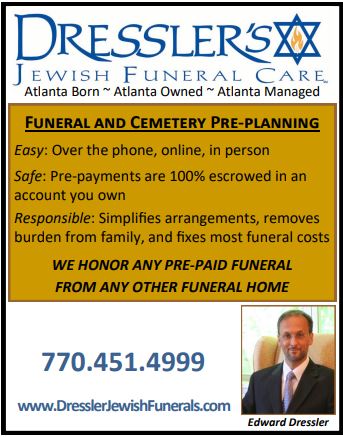SHEMOT 5786
SHEMOT 5786
Are You a Procrastinator?
I have a confession to make. Promise not to tell anyone? I’m a procrastinator. In fact, I was going to give this sermon last week, but I procrastinated—really! You see, my work as a rabbi can be so overwhelming—with so much to do—that my motto sometimes is: ‘Never put off until tomorrow what you can put off until the day after tomorrow.” My consolation is that I’m not the only one. I know people who wait until December 31st to pay their synagogue dues and Yom Kippur pledges. I know students who wait until the night before to cram for their exams. I know people who wait until the week before a simcha to buy a new suit or dress.
Who is the world’s most famous procrastinator? You might say it’s Gd, because while He could have made the world in 1 day, He took 6! Who’s the 2nd most famous procrastinator? Perhaps it’s Moshiach. He’s always about to come—and we’re still waiting!
One might say that in this week’s Torah portion Moses appears to be a procrastinator. At the burning bush Gd tells him (Ex. 3:10): “Go, I will send you to Pharoah, and you shall take My people the Children of Israel, out of Egypt.” Again and again, Moses tries to avoid and delay, offering excuse after excuse—like, “The people won’t believe me. I’m not a man of words. I have a speech impediment.”
Rabbi David Vorspan suggests that the most famous procrastinator is Joseph. Why? Because, as we saw at the end of Bereshit/Genesis, Joseph spent 22 years in Egypt and never phoned home or got around to writing a letter to his father—not even once! OK, for his 1st 13 years he was 1st a slave and then imprisoned. But for the last 9 years he was the Prime Minister and could easily have sent a message.
In last week’s parsha we really see Joseph’s capacity to procrastinate. When Jacob became ill, the Torah (Gen. 48:1) tells us: Vayomer l’Yosef, hiney avicha choleh (It was told to Joseph that Jacob your father is ill). Rabbi Vorspan asks: “Why did Joseph have to wait for a messenger to tell him? How long was it since his last visit?” Did he tell the messenger—probably one of his brothers: “I’m meeting with important officials now. I’ll get there when I can?”
I see 3 possible explanations of why Joseph procrastinated ... and if they don’t all fit him, I suspect they may fit us. One possibility is that he was busy. After all, he was the Prime Minister of Egypt with so many economic, social, political and military issues to deal with every day. So, he may have neglected, not only his father and his brothers, but his wife and children as well.
Can you identify with that? Don’t we all live with those kinds of pressures? Our jobs and responsibilities—with most spouses working as well—are so demanding that we’re often conflicted between what we have to do and what we want to do. So, we end up doing what’s immediately pressing—often letting what’s more important wait. And then we’re surprised when the family blows up because we’ve neglected them.
I meet people like this all the time … people who come into my office when their kids are in trouble, become drug dependent or act out their anger in destructive ways. I feel for them when they ask me, “What did I do wrong? How come I didn’t know anything about this until now?” If Joseph procrastinated seeing his father because of the pressures of work, we can relate.
I have a colleague who’s very devoted to his congregation. He’s out at meetings several nights a week. One night, he promised his family he’d stay home with them. He got halfway into his chair at the dinner table when the phone rang: “Rabbi, we really need you at this meeting. Please come.” Reluctantly, he put on his coat and went. But as he went out the door, he said to his wife and kids, “I know I’m really doing the wrong thing”—but he went anyway. I worry for that Rabbi and for his family. He may end up helping everyone else and losing his family in the process.
Perhaps Joseph was the 1st example of that. He certainly wasn’t the last. We ought to learn from him what not to do. Too often we mistake what’s urgent for what’s important. The phone call is urgent; but the child is more important. Joseph was the 2nd most powerful man in the world, yet the Torah records him as showing up only after being told his father was dying. He almost let the urgent crowd out the eternal.
Consider a 2nd possibility. Perhaps Joseph procrastinated because he knew his father was terminally ill and it was hard to see him like that, so perhaps he thought, “If I go now, I’ll be uncomfortable, helpless and scared; so I’ll go tomorrow.”
Can you relate? It’s not easy to visit a terminally ill patient. You feel your helplessness and see your own mortality reflected in their eyes. It’s easier to find an excuse to put it off. But if we do that, we not only cheat the dying out of the companionship they desperately need, we cheat ourselves out of the opportunity to do a mitzvah and have a precious learning experience. You see, someday it’ll be us in that deathbed, so we have much to learn from such a visit.
Sometimes it’s not others who we’re afraid of visiting. Sometimes it’s ourselves? What do I mean? I’ve known several people with health issues who avoided doctors because they were fearful of a serious diagnosis. For some, when they finally went, it was too late to do much about it. It seems procrastinating can kill!
When Joseph finally went to his father, what did he find? He found a father who was still alive, still alert, still full of wisdom and insight who had one last message of guidance for him—one final set of blessings. If he had delayed a bit longer, he might have missed that.
There’s one more reason why he may have procrastinated. Joseph didn’t know what his visit would be like. He had no previous experience with anything like this. His mother died when he was a child. It’s easier to stay where things are familiar, than to go into the unknown.
We can identify with this as well. I know people who are stuck in a relationship or a job but stay there because it’s familiar. They think it’s better, or at least safer to stay with what they know, rather than venture into the unknown. Many of us live our lives that way, afraid to try something new, afraid to reach out to others for fear of being rejected, hugging the familiar, avoiding the unknown.
Joseph was able to find the courage to go see his father before it was too late. And he was blessed when he got there. And, he was able to deepen his relationship with his brothers there as well.
My friends, may I suggest—to you and to me—that sometimes we take the risk and venture into new experiences. Many of us are not open to enhancing our spiritual lives—becoming kosher, increasing Shabbat observance, davening every day, learning Torah every day, putting on tefillin—because we’re not used to it. It may be awkward or uncomfortable at 1st. But when we open ourselves up to doing and being more, we open ourselves up to being blessed.
And therefore, I would like to announce that, as soon as I find the time, I will form a Society of Ex-Procrastinators. I intended to do it lst year, but never got around to it. If I don’t get around to it this year, then maybe I’ll do it next year.
Originally, I was going to form a Society of Pessimists, but then I worried that it probably wouldn’t succeed, so I decided to form a society of ex-procrastinators instead. But before I invite you to join, I want to leave you with this: Joseph made it in time to see his father before he died—but just barely. We don’t always get a messenger like Joseph got telling us it’s our last chance. So, in this secular New Year, don’t wait for someone to tell you that time is running out. Give the hug today. Start the Mitzvah today. Make the call today right after Shabbat. Amen!



